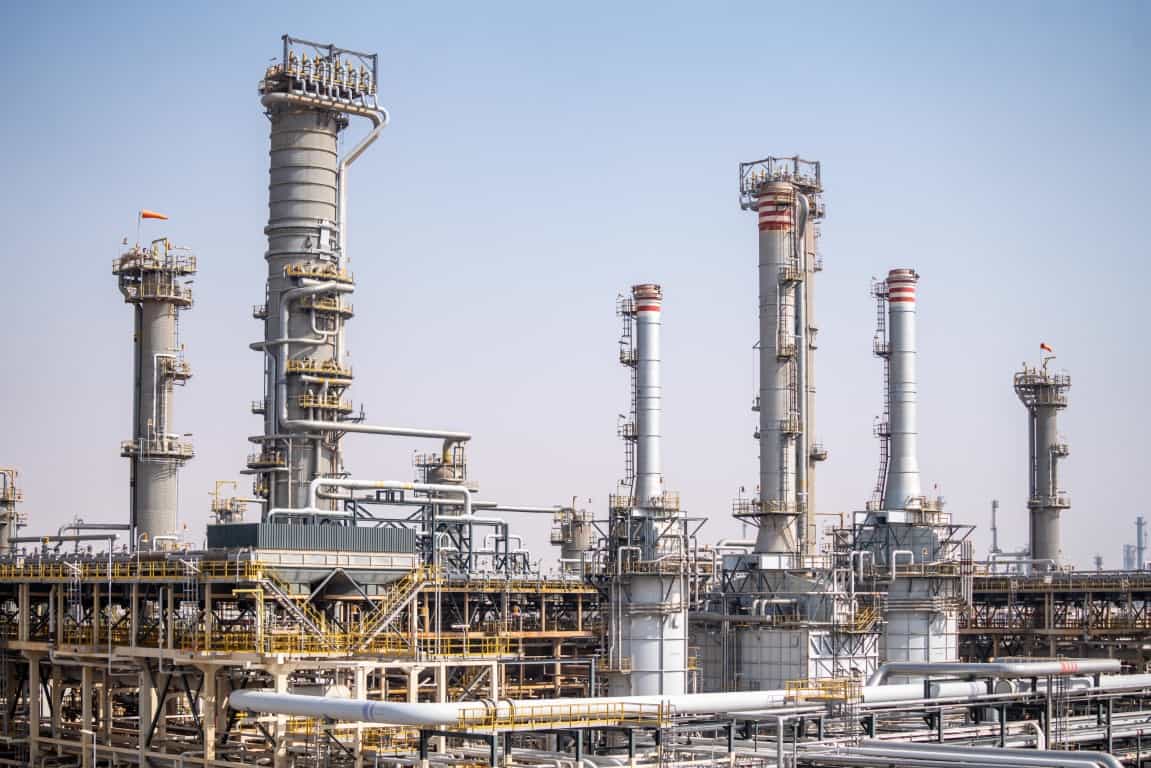Dubai, UAE — Chemical companies in the Gulf region are likely to cope relatively well with the current stresses of rising interest rates and higher energy costs.
In their recent report, S&P Global Ratings stresses the sensitivities of credit metrics of chemical companies based in the GCC countries to both rising interest rates and higher energy costs and finds that they come out stronger compared with other larger European peers.
That said, the pressures on the GCC’s chemical companies are similar to the rest of the world. Increased geopolitical fallout in Europe such as the Russia-Ukraine conflict, for example, and prolonged COVID-19 restrictions in China have strained supply chains and translated into a weaker global macroeconomic picture, with expectations of increasing interest rates in many jurisdictions, including the GCC.
As such, S&P Global Ratings expects global real GDP to grow 3.1 percent and 2.4 percent in 2022 and 2023, compared with 6.1 percent in 2021.
Additionally, given the recent increase in natural gas prices, the main feedstock for chemical companies in Europe and the Middle East, has raised questions about the resilience of chemical companies.
According to S&P, European chemicals companies as more exposed to such risks than their GCC peers.
For that reason, they took various rating actions on several European chemical’s companies in August 2022, including on leading players such as BASF (A/Negative/A-1) because of the increased business risk. The higher prices and threats to supply of natural gas, which is not only used to generate electricity and steam, but also serves as raw material in chemical value chains, introduced grave operational supply chain challenges.
On the other hand, higher prices for commodities, including natural ga), benefits commodity players in the GCC, including their rated universe and publicly listed chemical companies. This is evident in their relatively strong performance in 2021 and relatively resilient first-half 2022.
For full-year 2022, overall market expectations are for publicly listed chemical companies to, on average, post continued healthy reported unadjusted EBITDA margins of about 30 percent, compared with 34 percent-35 percent in 2021, despite expectations of some margin softening this year.
Comparison with European peers
Market conditions for commodity chemical companies have improved notably over the past 15-18 months on the back of rising oil prices, strong demand, tight supply (amid the Russia-Ukraine conflict and China’s export ban), and rising feedstock prices, which pushed up selling prices.
Fertilizer prices, for example, are at their highest levels since at least 2008. However, S&P see potential demand disruption in the medium term for the overall commodity chemicals sector, given the weaker macroeconomic picture from COVID-19 supply chain disruptions, particularly from prolonged lockdowns in China and its zero infections policy, reduced manufacturing activity in China due to power rationing, inflationary pressures in Europe particularly, and geopolitical tensions, which, coupled with high inventories and new capacities could pressure overall profitability and margins.
The report expects mostly price-led demand destruction to already have taken place this year and that will likely continue into 2023, as inflationary and potential new regulatory pressure in some markets would likely shift consumer spending to more affordable products, less demand for packaging, and potential changes in crop mixes, which in turn could reduce crop yields.
It also expects the diversified product mix, long-term feedstock agreements, and sizable scale of the large GCC chemical players to support cash flow visibility and mitigate volatility from these risks.
As a result, the report continues to see the GCC chemical companies emerging as better positioned, with an even more notable widening gap, compared with the largest European players, given the region’s visibility of long-term feedstock supply from the national oil companies and Competitive feedstock pricing in lowest cost quartile, which provides margin support and mitigates volatility amid higher input costs globally.
Ratings
S&P ratings on chemical companies factor in the inherent cyclicality of commodity prices and their sensitivity to supply-demand patterns, inventory levels, energy prices, and macroeconomic conditions.
In the GCC, their rated portfolio is investment-grade level, and two out of the four rated entities carry a positive outlook.
For SABIC, the positive outlook is in line with the outlook on Saudi Arabia, because chemicals company are a government-related entity (GRE) with very strong ties with the sovereign.
As for EQUATE, the assignment of a positive outlook in November 2021 was supported by improving credit metrics on the back of higher commodity prices. Important to note, that even with elevated pricing conditions, positive outlooks and higher prices would not necessarily translate into immediate upgrades. In line with the stresses above, monitoring company-specific factors such as financial policies and the use of windfall profits are also important considerations.
Given higher sensitivities of rising interest rate fluctuations, refinancing risk and liquidity profiles would be key aspects we monitor, in addition to financial policy decisions and what actions these companies would take to preserve liquidity positions. Additionally, the cash flow visibility, which GCC chemical players enjoy, and its sustainability are key to mitigating price volatility and preserving credit metrics.
Notably, the GCC’s national oil companies, whose credit quality is largely closely aligned with the respective (highly rated) sovereigns and that provide the competitively low-priced feedstocks, are major shareholders of our rated GCC chemical entities.
More specifically for SABIC and Industries Qatar, the final rating, and ultimately the outlook, is closely driven by the rating on the respective sovereign, because we consider them as GREs with very strong links with the government.
For EQUATE, because we view the company as strategically important to Kuwait Petroleum Corp. the national oil company in Kuwait, the final rating benefits from a three-notch uplift from the stand-alone credit profile.

